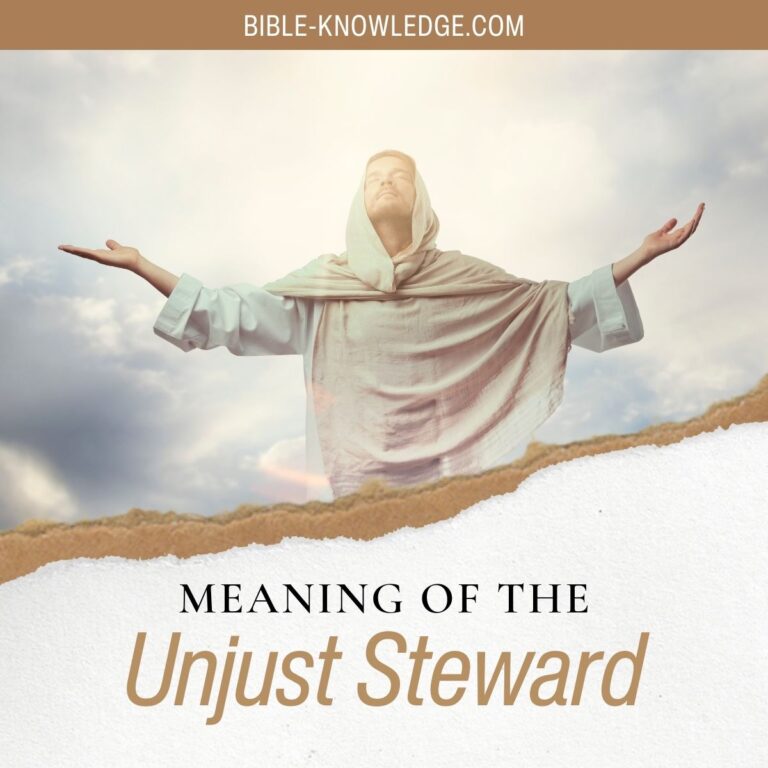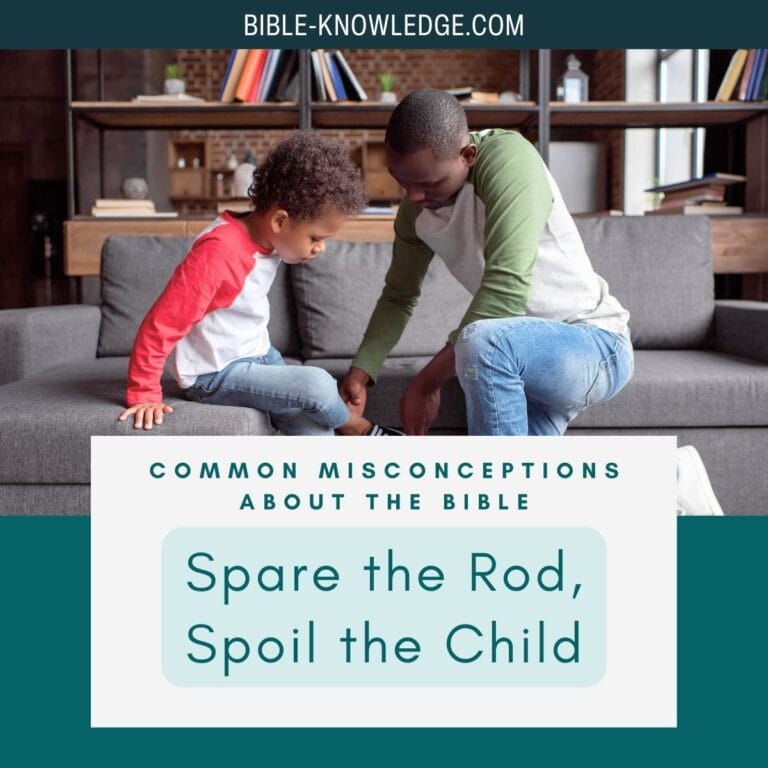While a right relationship with God does involve keeping his commands (aka rule-keeping), to say the point of Christianity is keeping the rules would be grossly inaccurate. Still, many assume Christianity involves just that as its most important focus.
Let’s be clear on something before going any further—the heart of Christianity was never meant to be about rule-keeping as its central goal. We’ve too often made it about that to the great sadness of God and the angst of mankind. Rather, the pursuit of God’s followers transcends rules because the object of our affection is God himself.

At the same time, however, we need to be careful about making a statement that Christianity isn’t about keeping the rules. The sinful mind can easily conclude the way we live doesn’t matter, then. Adhering to God’s laws or rules matters in a big way. How we live our brief time on earth is far more significant than our limited minds can comprehend. It’s just that if we aren’t careful, the rules God meant for our good can actually cloud out God Himself. The God who is the ultimate good and our most urgent and joyous need.
In a recent email newsletter, Scott Hubbard, Editor of Desiring God shared about the danger of extremes in the Christian walk when he wrote the following:
“The Christian life does not begin by grace and then proceed in our own strength. We begin, grow, and finally reach home by grace alone. Even though almost every Christian can agree with that statement intellectually, our experience often betrays a tendency toward grace’s two enemies: legalism and license.”
Scott Hubbard
Once we come to Christ, we can be tempted to go in one of two extremes as shared. Either we become caught up in the rules of the faith to the point we could be considered legalistic or we take God’s grace too far, assuming we can live however we want because it’s on the “forgiveness tab.” For this particular article, we’ll focus more on the legalist or rule-keeping route. The term “legalist” doesn’t have a good name in the church or outside of it. Yet, ironically, its practice is still widespread. Spiritual blindness accompanies legalism (elevating the rules of God above God himself).
Jesus didn’t have good things to say about rule-keeping or legalism. He called the religious leaders of his day “blind guides.” They wrongly believed they were doing God’s will by keeping the rules. In reality, they deceived themselves and their followers. Their religion was nothing but a bunch of manmade rules. On top of that, they used the rules of God to glorify themselves instead of God.
Let’s explore a few reasons why the center of Christianity isn’t about keeping the rules. We’ll start with the number-one, overarching reason.
Our Relationship With God Overrides Rule-Keeping
Many people have been turned off by Christianity because our churches have, too often, lived a life of rules to the neglect of a relationship with God. In other words, the rules came first and God came second (if at all). We made God’s rules our idol of choice and, ironically, what kept us from an authentic relationship with the true God were the things He asked us to do or not to do. Jesus found a similar religiosity in Israel when He walked the earth. Lots of rule-keeping existed, but very little God-seeking could be found.
This is a sad and faulty way to approach God. The laws or rules God set down hold no meaning apart from an ongoing relationship with Him. It needs to be God first and then keeping the rules naturally flows from that relationship. Our God encounter isn’t meant to be a strict, austere and unsmiling venture that scares virtually every outsider (and insider) away from the faith. Someone who comes into contact with the true God wouldn’t regularly live that way.
Instead of arrogance and unhappiness, our regular interaction with God fills us with hope, peace, love and joy. We develop respect, admiration and love for God. The natural outflowing of that vibrant relationship is obedience. And this obedience that flows from a healthy relationship with God is attractive to people (although the scriptures do say some will find it repelling).
There are a number of useful analogies we could explore to help us understand the relationship-over-rules dynamic true Christianity should follow. For starters, a devoted athlete with a lot of heart will love the game he plays. He’s passionate about the process of contributing to a team’s efforts and all aspects of the game. That athlete, however, would never tell you his number-one pursuit is following the rules of his sport. Sure enough, the rules do exist and help him to know how to conduct himself on the sports field. Still, it would be silly to say the athlete has fallen in love with the rules of the game rather than the game itself.
There’s something higher that propels the athlete forward: The love of the game rather than the love of or preoccupation with rules is his motivation. The rules simply help to define that love and set its parameters. They, of course, aren’t the game itself. In the same way, something far higher than the rules propels us forward when it comes to Christianity.
It’s the love of God rather than the love or preoccupation with rules. Parameters exist and are naturally followed so the relationship works correctly. However, they were never meant to be the main show. The rules are the photograph. The relationship is the actual person. The athlete plays within the parameters of the game because he loves the game, just as someone operates in the parameters God has set up because they love God.
Focusing on the Rules More than Our Earthly Relationships Wouldn’t Work
This is more of a human argument but helps us better understand how real Christianity works. Do you look at your earthly relationships, first and foremost, as rule-keeping? Hopefully not!
God created many things in the material world that serve as powerful analogies for us about deeper spiritual truths. The ant is used as an example of how we should be hard workers. The unconquerable Leviathan mentioned in the Book of Job was created to show us a glimpse of just how powerful God is. After all, if God can make such a fearsome beast (likely now extinct), He must be far more powerful than his creation. Jesus spoke of his children as sheep and as Himself as the good shepherd. Jesus is also referred to as the Lamb who was slain and the Lion of Judah. A relationship between a husband and his wife is meant to be a living analogy of Christ’s relationship with the church and the list goes on.
In the same way, there’s a lot we can learn from our earthly relationships that help us better understand how we should relate to God. For instance, the scriptures say if we can’t first love people we can see, we’ll be a miserable failure at loving God who we cannot see. There’s a greater complexity to loving God than there is to loving people. People are limited, created beings who, to some extent, we can better understand and assess although only God can truly know their hearts. God, on the other hand, is infinite and, although we’re made in his image, He’s still mysterious to a great extent.
That said, learning how to have healthy relationships with people helps to prepare us to have a healthy interaction with God. There are transferrable “skills”. Your earthly relationships would break down if you focused on the rules and obligations only. After all, we’re not dumb. We can intuitively tell if someone is merely relating to us out of obligation rather than love. Even a child can tell the difference between the two, although we may be tempted to suppress our assessment.
One exhibits a light in the eyes and a spring in the step and does not parade around good deeds done in the relationships because others are the focus. The other trudges through the mud and may seemingly do everything right but there is a lack of love, sincerity and a profound deadness that hangs over everything in that relationship. Loving devotion, not duty, is what makes our earthly relationships sing.
Would you say, “I love you,” to your spouse only because it was the right thing to do? Would you send a Father’s or Mother’s Day card only because it’s your duty? Certainly, under the weight of the world’s pressures, there may be times this happens in our earthly relationships. There are also times we have to deny ourselves when we don’t want to like in the case of a baby waking up a parent in the middle of the night. A good parent may not get up for the child out of loving feelings but duty. A spouse may also choose to be faithful when they’re tempted by infidelity in the same way.
The point is, there will be times when we come face to face with rules in our earthly relationships. However, more than anything else, we should come face-to-face with love. Love allows us to make those relationships thrive far better than dryly trying to “do everything right” which leads us to our next point.
A Relationship Focus Helps Us “Keep the Rules” Better
In your life, when do you do your best work? When you feel like you have to do a task or when you’re excited because you get to do a task? The second one, of course. Living life only focused on an obligation is demotivating and soul-draining. It’s like a loveless marriage that goes on and on but lacks any enthusiasm. Although it may seem that focusing on duty above all else would get you the best results, that isn’t the case. Duty only finds its meaning in the context of relationships.
When our focus is only on the rules, not only is there a lack of enthusiasm, but the desire to go above and beyond is also lacking. It becomes about doing as little as we have to or superficially obeying the rules to pacify our own pride and conscience instead. A perfect example of this is the immoral woman who anointed Jesus’ feet.
The story is powerful because it features rule-keepers, relationship-above-rule seekers and the Son of God Himself. With her tears and extremely expensive perfume, the immoral woman kissed Jesus’ feet and wiped them with her hair. Those who considered themselves more righteous than her, particularly the disciples and Pharisees were bothered by the display. But Jesus praised the woman for her actions.
Jesus told a story to illustrate the fact that those who are forgiven a greater debt by God tend to show a stronger love for Him. What seemed extravagant to the indignant bystanders wasn’t to the woman. Her deeply felt gratitude compelled her to show her love to God in a uniquely selfless way. Jesus concluded his story by explaining the point of it:
“Therefore I say to you, her sins, which are many, are forgiven, for she loved much. But to whom little is forgiven, the same loves little.”
Luke 7:47
As Jesus predicted, the woman’s story would be mentioned around the world. That certainly continues to be the case. The story serves as a powerful example of valuing our relationship with God over the rules and is included in each of the gospels. Because this “immoral” woman had the proper perspective, her love for her Lord caused her to do far more than was required by the law. The disciples and Pharisees, on the other hand, struggled to view the matter correctly. Sadly, they were more concerned with putting down the woman and her extravagance. Jesus was also put down by some of them for “not recognizing that the woman anointing his feet was a sinful woman.”
The woman mentioned in this story wasn’t concerned with “doing just enough to make God happy” as some who witnessed the event were. Trying to keep the rules caused some who saw the scene to judge Jesus and the woman. An over-attention to rule-keeping actually made them disobedient. On the other hand, because the woman had her focus on her love relationship with God first, she went beyond even what the law commanded. The law didn’t command her to use an ointment worth so much (a year’s wages). But in response to God’s extravagant love in forgiving her many sins, she couldn’t help but return the extravagance.
Rule-Keeping Above a Relationship With God Destroys Your Soul (And Hurts People)
The result of trying to keep the rules on our own strength leads to an ugly, deceived and dark soul. A thin veneer of false religiosity covers individuals who go this route. And it can’t be understated how thin that outer shell of falsehood really is. Someone may sadly imagine that a self-righteous person is an example of what “devout” Christ followers look like. But they’d only draw such a conclusion if they’d never seen the real thing before.
What is the real thing, or better yet, who is the real thing? That question is easy to answer: The real “thing” is a person and his name is Jesus Christ. He was exactly what the false religious system of his day was not nor ever could be without Him. He was completely dependent upon God to perform his perfectly righteous acts. The religious leaders and the entire religious system, meant to be a light in the darkness to the world, could not accomplish their mission. Jesus was completely dependent upon God the Father (although Jesus always existed in the Godhead). The false religious system Jesus worked within was a miserable failure and would ultimately reject Him.
That’s why the scriptures in Isaiah prophesied about Jesus that the people walking in darkness would see a great light. Self-righteous people and religious systems don’t lead to a great light or any light at all, for that matter. They actually bring on deep darkness that’s worse than your average paganism. Not only are they heading to a Christless eternity unless they repent, they are also “in the name of God”, leading countless others along the path of destruction too.
Rule-keeping can lead to all kinds of religious evil done “in the name of God.” A relationship with Jesus is our only hope. If we focus too much on rules, we could damage our souls and the souls of others.
Summing It Up
So if keeping rules isn’t the point of Christianity, what is? Loving God and people and to be loved by our Creator. First, John says we love God because He first loved us. We love Him because of his lavish grace, far-reaching mercy and never-ending love for us. We follow Him because He calls us to Himself for His Kingdom purposes. We live to please Him because of his generosity in redeeming our lost souls. And we love others, so we can reflect God’s love.
So no, Christianity isn’t just about keeping rules. Instead, it’s about a relationship with your Heavenly Father. He’s given rules to guide us like a map guides a traveler. This world is not our home. We are pilgrims traveling through to our Homeland, Heaven.





Thank you very much for your emails and all your thoughtful commentaries on his word!